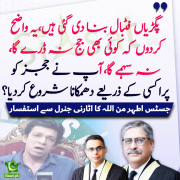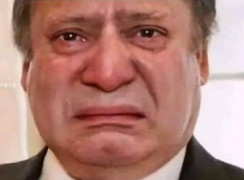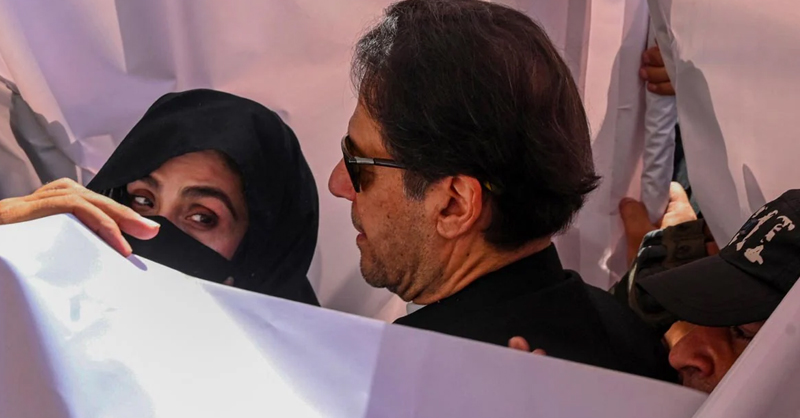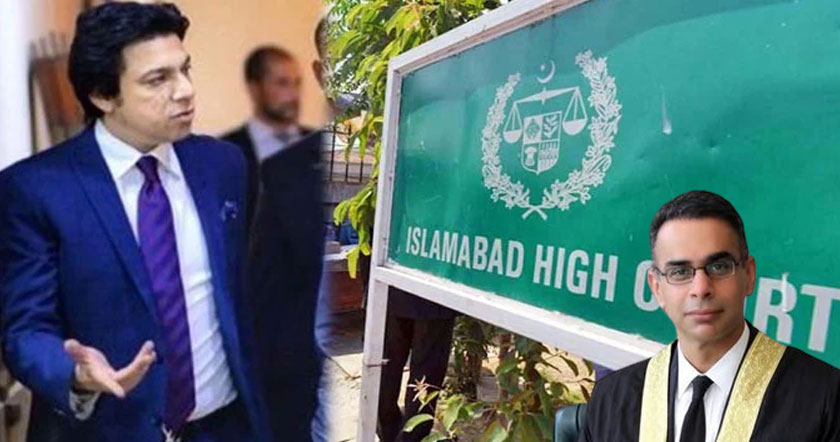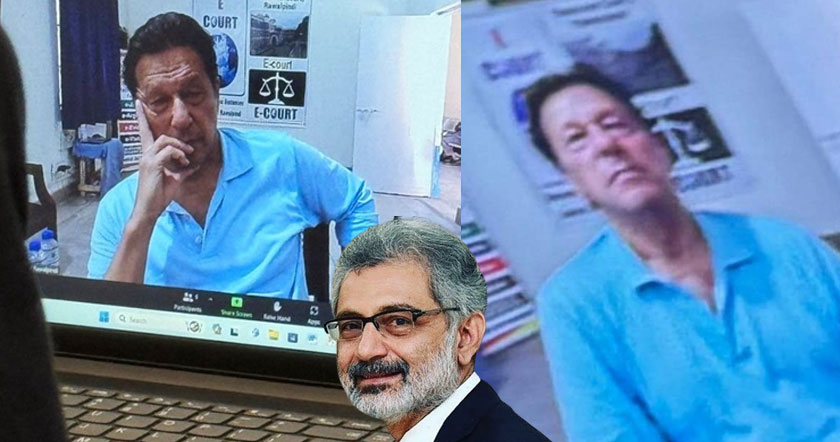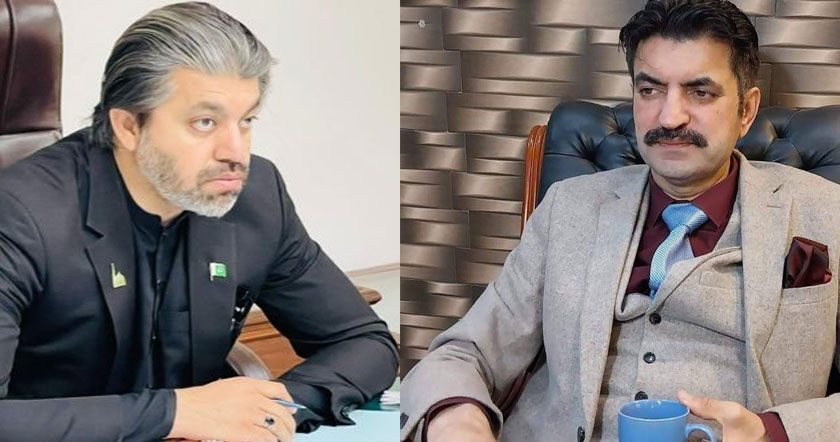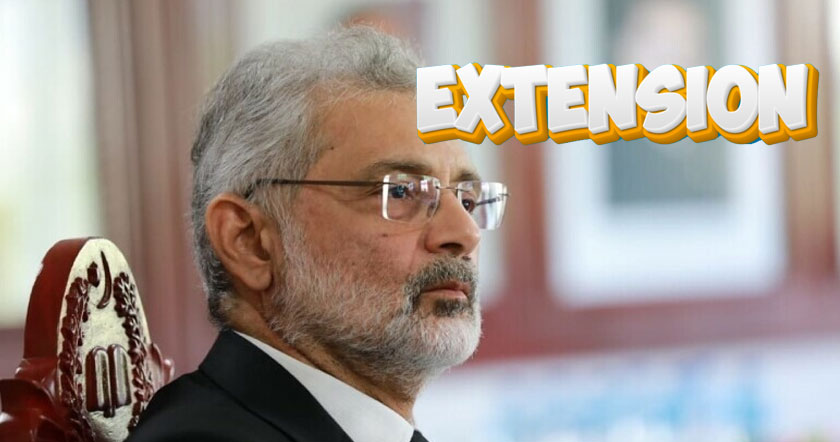You are using an out of date browser. It may not display this or other websites correctly.
You should upgrade or use an alternative browser.
You should upgrade or use an alternative browser.
Qaseeda Burdah Sharif: A Beautiful Soulful Flute Cover
First Strike
Chief Minister (5k+ posts)
Jazak Allah Khair
Citizen X
President (40k+ posts)
Jazak Allah Khair kis cheez ka? Aap ko pata nahi mosiqui haram hai!!!!Jazak Allah Khair
/sarcasm off
RajaRawal111
Prime Minister (20k+ posts)
It sounds like and Indian filmi song in the middle.
Thankyou. Orignal one in Qari Waheed Zafar voice is much better
Thankyou. Orignal one in Qari Waheed Zafar voice is much better
RajaRawal111
Prime Minister (20k+ posts)
Let us cool our heart and soul with the original one. ﷺ
First Strike
Chief Minister (5k+ posts)
Jazak Allah Khair kis cheez ka? Aap ko pata nahi mosiqui haram hai!!!!
/sarcasm off
Yes dear brother there should not be music specially in Islamic stuff.
Citizen X
President (40k+ posts)
I was being sarcasticYes dear brother there should not be music specially in Islamic stuff.
Dear Bro,It sounds like and Indian filmi song in the middle.
Thankyou. Orignal one in Qari Waheed Zafar voice is much better
There is no Naat Khwan like Qari Waheed Zafar Qasmi. He is one and only. But, if you listen to naatkhwans of current era, you might doubt that those filmi songs are based on these naats. You can disagree but this is the truth.
ashfaq3164`
Citizen
This is best one
RajaRawal111
Prime Minister (20k+ posts)
I absolutely agree with you sirDear Bro,
There is no Naat Khwan like Qari Waheed Zafar Qasmi. He is one and only. But, if you listen to naatkhwans of current era, you might doubt that those filmi songs are based on these naats. You can disagree but this is the truth.
RajaRawal111
Prime Minister (20k+ posts)
Here you go. If you were being Sarcastic, and don't mind music.I was being sarcastic
This is a Hammad
Please guys I am not promoting it. Just showing where things are progressing.
Citizen X
President (40k+ posts)
No I don't mind music at all, but reggae really isn't my thing.Here you go. If you were being Sarcastic, and don't mind music.
This is a Hammad
Please guys I am not promoting it. Just showing where things are progressing.
mrlalamusa
MPA (400+ posts)
It is full Qaseeda Burda Shareef Without Music
Pakistani1947
Chief Minister (5k+ posts)
We love the Prophet Muhammad but this love has a limit we cannot go beyond or below. For example, because of our love of the Prophet pbuh we cannot say he is the son of Allah, as the Christians went into an extreme in loving their prophet. If we did this, we would be just like the Christians.
Yes, there is much in the poem that is praiseworthy and beautiful. In fact, certain sections will even move you to tears. However, that doesn't change the fact that there is blatant SHIRK in all three categories of Tahweed in that poem: Shrik in ruboobiyyah, Uloohiyyah and Asma wa sifaat. Therefore, the poem should not and cannot be read except to correct these excesses.
As for the alleged story of how the poem was written, the Prophet pbuh would not appear to anyone and praise him had he written something of shirk. It is only the Sufis who base their religion on dreams and fairy-tales; as for the true Muslm, he has the Quran and authentic Sunnah as his only true guides.
An example of Shirk in ruboobiyyah is the stanza: "And of your generosity is the (creation) of the Wolrd and its co-wife (meaning the Hereafter)..." Here it is as if the World and the Hereafter was created from the generosity of the Prophet pbuh.
An example of Shirk in Asma wa sifaat: "And part of your knowledge is the knowledge of the Tablet and the Pen..." So PART of the knowledge of the Prophet pbuh is the knowledge that is encompassed in the LAwh al-Mahufdh - the tablet that has EVERYTHING written on it!! and that is only 'part' of his knowledge!! Compare this mystic poem with the authentic hadeeth in Bukhari where a young girl said "And we have a prophet who knows what will happen tomorrow.' to which the Prophet pbuh said, "Leave this (bit), and say the rest of it." (Sahih Bukhari; Book #62, Hadith #77)
Example of shirk in uloohiyyah: " And who else there, besides you, who I can call out, at times of distress and problems?" Umm... how about our Creator, the only one the Prophet pbuh HIMSELF would turn to at times of distress??
Allah Knows best
Pakistani1947
Chief Minister (5k+ posts)
Qasida Burda contains lines against Quraan and Sahih Bukhari hadeethJazak Allah Khair
Qasida Burda: For verily amongst your bounties is this world, and the hereafter.
............................And part of your knowledge is knowledge of the Preserved Tablet (لوح محفوظ), and the Pen. (Chapter 10/5-6)
Here he is saying that this life and the life after is from the generosity of the Prophet Muhammad (pbuh). Therefore, this life and the hereafter belong to the Prophet Muhammad (pbuh). Yet Allah attributes both this life and the life after to him.
Allah says, (AlLayl 12-16):
إِنَّ عَلَيْنَا لَلْهُدَىٰ
Verily We take upon Ourselves to guide,
بے شک ہمارے ذمے راہ دکھانا ہے
وَإِنَّ لَنَا لَلْآخِرَةَ وَالْأُولَىٰ
And verily unto Us (belong) the End and the Beginning.
اور بے شک ہمارے ہی ہاتھ میں آخرت بھی اور دنیا بھی ہے
فَأَنذَرْتُكُمْ نَارًا تَلَظَّىٰ
Therefore do I warn you of a Fire blazing fiercely;
پس میں نے تمہیں بڑھکتی ہوئی آگ سے ڈرایا ہےm
لَا يَصْلَاهَا إِلَّا الْأَشْقَى
None shall reach it but those most unfortunate ones
جس میں صرف وہی بد بخت داخل ہوگا
الَّذِي كَذَّبَ وَتَوَلَّىٰ
Who give the lie to Truth and turn their backs.
جس نے جھٹلایا اورمنہ موڑا
In the second line of poetry, Al-Busairi mentions (al-Lahw-لوح محفوظ) which is with Allah alone, as well as (the kalam), which is the unforeseen knowledge, where Allah has written everything that will happen 50,000 years before the creation of the sky and earth. Al-Busairi attributes this knowledge to the Prophet (pbuh) and claims that the Prophet knows what is in that book.
This is from deviance as Allah says (AlNaml: 65):
قُل لَّا يَعْلَمُ مَن فِي السَّمَاوَاتِ وَالْأَرْضِ الْغَيْبَ إِلَّا اللَّهُ ۚ وَمَا يَشْعُرُونَ أَيَّانَ يُبْعَثُونَ
Say: None in the heavens or on earth, except Allah, knows what is hidden: nor can they perceive when they shall be raised up (for Judgment).
کہہ دے الله کے سوا آسمانوں اور زمین میں کوئی بھی غیب کی بات نہیں جانتا اور انہیں اس کی بھی خبر نہیں کہ کب اٹھائے جائیں گے
(Qur'aan AlAnaam: 59)
وَعِندَهُ مَفَاتِحُ الْغَيْبِ لَا يَعْلَمُهَا إِلَّا هُوَ ۚ وَيَعْلَمُ مَا فِي الْبَرِّ وَالْبَحْرِ ۚ وَمَا تَسْقُطُ مِن وَرَقَةٍ إِلَّا يَعْلَمُهَا وَلَا حَبَّةٍ فِي ظُلُمَاتِ الْأَرْضِ وَلَا رَطْبٍ وَلَا يَابِسٍ إِلَّا فِي كِتَابٍ مُّبِينٍ
With Him are the keys of the unseen, the treasures that none knoweth but He. He knoweth whatever there is on the earth and in the sea. Not a leaf doth fall but with His knowledge: there is not a grain in the darkness (or depths) of the earth, nor anything fresh or dry (green or withered), but is (inscribed) in a record clear (to those who can read).
اور اسی کے پاس غیب کی کنجیاں ہیں جنہیں اس کےسوا کوئی نہیں جانتا جو کچھ جنگل اور دریا میں ہے وہ سب جانتا ہے اور کوئی پتہ نہیں گرتا مگر وہ اسے بھی جانتاہے اور کوئی دانہ زمین کے تاریک حصوں میں نہیں پڑتا اور نہ کوئی تر اور خشک چیز ہے مگر یہ سب کچھ کتاب روشن میں ہیں
Narrated Ar-Rabi': (the daughter of Muawwidh bin Afra) After the consummation of my marriage, the Prophet came and sat on my bed as far from me as you are sitting now, and our little girls started beating the tambourines and reciting elegiac verses mourning my father who had been killed in the battle of Badr. One of them said, "Among us is a Prophet who knows what will happen tomorrow." On that the Prophet said, "Leave this (saying) and keep on saying the verses which you had been saying before." (Sahih Bukhari; Book #62, Hadith #77)
In above hadeeth, a young girl said "And we have a prophet who knows what will happen tomorrow.' to which the Prophet pbuh said, "Leave this (bit), and say the rest of it."
It sounds like and Indian filmi song in the middle.
Thankyou. Orignal one in Qari Waheed Zafar voice is much better
Yes dear brother there should not be music specially in Islamic stuff.
It is full Qaseeda Burda Shareef Without Music
Last edited:
Dear I totally agree that only Allah knows Ilm ul ghaib.Qasida Burda contains lines against Quraan and Sahih Bukhari hadeeth
Qasida Burda: For verily amongst your bounties is this world, and the hereafter.
............................And part of your knowledge is knowledge of the Preserved Tablet (لوح محفوظ), and the Pen. (Chapter 10/5-6)
Here he is saying that this life and the life after is from the generosity of the Prophet Muhammad (pbuh). Therefore, this life and the hereafter belong to the Prophet Muhammad (pbuh). Yet Allah attributes both this life and the life after to him.
Allah says, (AlLayl 12-16):
إِنَّ عَلَيْنَا لَلْهُدَىٰ
Verily We take upon Ourselves to guide,
بے شک ہمارے ذمے راہ دکھانا ہے
وَإِنَّ لَنَا لَلْآخِرَةَ وَالْأُولَىٰ
And verily unto Us (belong) the End and the Beginning.
اور بے شک ہمارے ہی ہاتھ میں آخرت بھی اور دنیا بھی ہے
فَأَنذَرْتُكُمْ نَارًا تَلَظَّىٰ
Therefore do I warn you of a Fire blazing fiercely;
پس میں نے تمہیں بڑھکتی ہوئی آگ سے ڈرایا ہےm
لَا يَصْلَاهَا إِلَّا الْأَشْقَى
None shall reach it but those most unfortunate ones
جس میں صرف وہی بد بخت داخل ہوگا
الَّذِي كَذَّبَ وَتَوَلَّىٰ
Who give the lie to Truth and turn their backs.
جس نے جھٹلایا اورمنہ موڑا
In the second line of poetry, Al-Busairi mentions (al-Lahw-لوح محفوظ) which is with Allah alone, as well as (the kalam), which is the unforeseen knowledge, where Allah has written everything that will happen 50,000 years before the creation of the sky and earth. Al-Busairi attributes this knowledge to the Prophet (pbuh) and claims that the Prophet knows what is in that book.
This is from deviance as Allah says (AlNaml: 65):
قُل لَّا يَعْلَمُ مَن فِي السَّمَاوَاتِ وَالْأَرْضِ الْغَيْبَ إِلَّا اللَّهُ ۚ وَمَا يَشْعُرُونَ أَيَّانَ يُبْعَثُونَ
Say: None in the heavens or on earth, except Allah, knows what is hidden: nor can they perceive when they shall be raised up (for Judgment).
کہہ دے الله کے سوا آسمانوں اور زمین میں کوئی بھی غیب کی بات نہیں جانتا اور انہیں اس کی بھی خبر نہیں کہ کب اٹھائے جائیں گے
(Qur'aan AlAnaam: 59)
وَعِندَهُ مَفَاتِحُ الْغَيْبِ لَا يَعْلَمُهَا إِلَّا هُوَ ۚ وَيَعْلَمُ مَا فِي الْبَرِّ وَالْبَحْرِ ۚ وَمَا تَسْقُطُ مِن وَرَقَةٍ إِلَّا يَعْلَمُهَا وَلَا حَبَّةٍ فِي ظُلُمَاتِ الْأَرْضِ وَلَا رَطْبٍ وَلَا يَابِسٍ إِلَّا فِي كِتَابٍ مُّبِينٍ
With Him are the keys of the unseen, the treasures that none knoweth but He. He knoweth whatever there is on the earth and in the sea. Not a leaf doth fall but with His knowledge: there is not a grain in the darkness (or depths) of the earth, nor anything fresh or dry (green or withered), but is (inscribed) in a record clear (to those who can read).
اور اسی کے پاس غیب کی کنجیاں ہیں جنہیں اس کےسوا کوئی نہیں جانتا جو کچھ جنگل اور دریا میں ہے وہ سب جانتا ہے اور کوئی پتہ نہیں گرتا مگر وہ اسے بھی جانتاہے اور کوئی دانہ زمین کے تاریک حصوں میں نہیں پڑتا اور نہ کوئی تر اور خشک چیز ہے مگر یہ سب کچھ کتاب روشن میں ہیں
Narrated Ar-Rabi': (the daughter of Muawwidh bin Afra) After the consummation of my marriage, the Prophet came and sat on my bed as far from me as you are sitting now, and our little girls started beating the tambourines and reciting elegiac verses mourning my father who had been killed in the battle of Badr. One of them said, "Among us is a Prophet who knows what will happen tomorrow." On that the Prophet said, "Leave this (saying) and keep on saying the verses which you had been saying before." (Sahih Bukhari; Book #62, Hadith #77)
In above hadeeth, a young girl said "And we have a prophet who knows what will happen tomorrow.' to which the Prophet pbuh said, "Leave this (bit), and say the rest of it."
But the thing is how do you know that those things were not revealed to Prophet PBUH.
Pakistani1947
Chief Minister (5k+ posts)
Prophet Muhammad ﷺ did not conceal (چھپانا)anything from his companions, he ﷺ conveyed whatever was revealed to him:Dear I totally agree that only Allah knows Ilm ul ghaib.
But the thing is how do you know that those things were not revealed to Prophet PBUH.
Narrated Masruq: I said to 'Aisha, "O Mother! Did Prophet Muhammad see his Lord?" Aisha said, "What you have said makes my hair stand on end ! Know that if somebody tells you one of the following three things, he is a liar: Whoever tells you that Muhammad saw his Lord, is a liar." Then Aisha recited the Verse: 'No vision can grasp Him, but His grasp is over all vision. He is the Most Courteous Well-Acquainted with all things.' (6.103) 'It is not fitting for a human being that Allah should speak to him except by inspiration or from behind a veil.' (42.51) 'Aisha further said, "And whoever tells you that the Prophet knows what is going to happen tomorrow, is a liar." She then recited: 'No soul can know what it will earn tomorrow.' (31.34) She added: "And whoever tell you that he ﷺ concealed (some of Allah's orders), is a liar." Then she recited: 'O Apostle! Proclaim (the Message) which has been sent down to you from your Lord..' (Qur'an 5:67) 'Aisha added. "But the Prophet saw Gabriel in his true form twice." (Sahih Bukhari; Book #60, Hadith #378)
ان سے عائشہ رضی اللہ عنہا نے کہا، جو شخص بھی تم سے یہ کہتا ہے کہ اللہ تعالیٰ نے رسول اللہ صلی اللہ علیہ وسلم پر جو کچھ نازل کیا تھا، اس میں سے آپ نے کچھ چھپا لیا تھا، تو وہ جھوٹا ہے۔ اللہ تعالیٰ نے خود فرمایا ہے «يا أيها الرسول بلغ ما أنزل إليك» کہ ”اے پیغمبر! جو کچھ آپ پر آپ کے پروردگار کی طرف سے نازل ہوا ہے، یہ ( سب ) آپ ( لوگوں تک ) پہنچا دیں۔“
Sahih Bukhari - 4612 (Islam360)
Last edited:
Dear,
For me it is enough that I believe in Allah and the finality of Prophet PBUH, and I should follow the orders and guidelines of Islam.
These issues would not help to be successful in the afterlife. During the course of discussing such issues I can utter some sinfull comments which can be more dangerous than bein beneficial.
Dear,Prophet Muhammad ﷺ did not conceal (چھپانا)anything from his companions, he ﷺ conveyed whatever was revealed to him:
Narrated Masruq: I said to 'Aisha, "O Mother! Did Prophet Muhammad see his Lord?" Aisha said, "What you have said makes my hair stand on end ! Know that if somebody tells you one of the following three things, he is a liar: Whoever tells you that Muhammad saw his Lord, is a liar." Then Aisha recited the Verse: 'No vision can grasp Him, but His grasp is over all vision. He is the Most Courteous Well-Acquainted with all things.' (6.103) 'It is not fitting for a human being that Allah should speak to him except by inspiration or from behind a veil.' (42.51) 'Aisha further said, "And whoever tells you that the Prophet knows what is going to happen tomorrow, is a liar." She then recited: 'No soul can know what it will earn tomorrow.' (31.34) She added: "And whoever tell you that he ﷺ concealed (some of Allah's orders), is a liar." Then she recited: 'O Apostle! Proclaim (the Message) which has been sent down to you from your Lord..' (Qur'an 5:67) 'Aisha added. "But the Prophet saw Gabriel in his true form twice." (Sahih Bukhari; Book #60, Hadith #378)
ان سے عائشہ رضی اللہ عنہا نے کہا، جو شخص بھی تم سے یہ کہتا ہے کہ اللہ تعالیٰ نے رسول اللہ صلی اللہ علیہ وسلم پر جو کچھ نازل کیا تھا، اس میں سے آپ نے کچھ چھپا لیا تھا، تو وہ جھوٹا ہے۔ اللہ تعالیٰ نے خود فرمایا ہے «يا أيها الرسول بلغ ما أنزل إليك» کہ ”اے پیغمبر! جو کچھ آپ پر آپ کے پروردگار کی طرف سے نازل ہوا ہے، یہ ( سب ) آپ ( لوگوں تک ) پہنچا دیں۔“ Sahih Bukhari - 4612 (Islam360)
For me it is enough that I believe in Allah and the finality of Prophet PBUH, and I should follow the orders and guidelines of Islam.
These issues would not help to be successful in the afterlife. During the course of discussing such issues I can utter some sinfull comments which can be more dangerous than bein beneficial.
Pakistani1947
Chief Minister (5k+ posts)
Brother,
With due respect, I disagree with your opinion that it is enough for you that you believe in Allah and finality of Prophet Muhammad pbuh and that you should follow the order and guidelines of Islam.
If somebody read following phrase in masses, which is a Blatant SHIRK, this our responsibility to point it out otherwise ordinary person would think that it is OK to call at the time of distress based on Qaseeda Burda Shareef:
" And who else there, besides you, who I can call out, at times of distress and problems?"
Whereas Qur'an says differently:
Now, lets see what Qur'an says about correcting others:
With due respect, I disagree with your opinion that it is enough for you that you believe in Allah and finality of Prophet Muhammad pbuh and that you should follow the order and guidelines of Islam.
If somebody read following phrase in masses, which is a Blatant SHIRK, this our responsibility to point it out otherwise ordinary person would think that it is OK to call at the time of distress based on Qaseeda Burda Shareef:
" And who else there, besides you, who I can call out, at times of distress and problems?"
Whereas Qur'an says differently:
(Qur'an 40:60) وَقَالَ رَبُّكُمُ ادْعُونِي أَسْتَجِبْ لَكُمْ ۚ إِنَّ الَّذِينَ يَسْتَكْبِرُونَ عَنْ عِبَادَتِي سَيَدْخُلُونَ جَهَنَّمَ دَاخِرِينَ
And your Lord said: "Invoke Me, [i.e. believe in My Oneness (Islamic Monotheism) and ask Me for anything] I will respond to your (invocation). Verily! Those who scorn My worship [i.e. do not invoke Me, and do not believe in My Oneness, (Islamic Monotheism)] they will surely enter Hell in humiliation!"اور تمہارے رب نے فرمایا ہے مجھے پکارو میں تمہاری دعا قبول کروں گا بے شک جو لوگ میری عبادت سے سرکشی کرتے ہیں عنقریب وہ ذلیل ہو کر دوزخ میں داخل ہوں گے
Man invokes Allah even without having seen Him; he invokes Him at all tithes, at all places, and under all circumstances; he invokes Him in solitude, aloud as well as in a low voice, and even in the depths of his heart. He does so inevitably on the basis of the belief that that Being is watching him everywhere, is also hearing whatever he has in his heart, and possesses such absolute powers that, it can come to the help of the supplicant wherever he is, and can help him out of every trouble and difficulty. After having known this truth about the prayer, it remains no longer difficult for man to understand that the one who invokes another than Allah for help, commits shirk absolutely and purely and clearly, for he believes those attributes to be belonging to the other being, which only belong to Allah. Had he not believed the other being to be an associate of Allah in the Divine attributes, he would never have even thought of invoking it for help.Now, lets see what Qur'an says about correcting others:
(Qur'an 3:110) كُنتُمْ خَيْرَ أُمَّةٍ أُخْرِجَتْ لِلنَّاسِ تَأْمُرُونَ بِالْمَعْرُوفِ وَتَنْهَوْنَ عَنِ الْمُنكَرِ وَتُؤْمِنُونَ بِاللَّهِ ۗ وَلَوْ آمَنَ أَهْلُ الْكِتَابِ لَكَانَ خَيْرًا لَّهُم ۚ مِّنْهُمُ الْمُؤْمِنُونَ وَأَكْثَرُهُمُ الْفَاسِقُونَ
You [true believers in Islamic Monotheism, and real followers of Prophet Muhammad صلى الله عليه وسلم) and his Sunnah] are the best of peoples ever raised up for mankind; you enjoin Al-Ma'ruf (i.e. Islamic Monotheism and all that Islam has ordained) and forbid Al-Munkar (polytheism, disbelief and all that Islam has forbidden), and you believe in Allah . And had the people of the Scripture (Jews and Christians) believed, it would have been better for them; among them are some who have faith, but most of them are Al-Fasiqun (disobedient to Allah - and rebellious against Allah's Command).تم سب امتوں میں سے بہتر ہو جو لوگوں کے لیے بھیجی گئی ہیں اچھے کاموں کا حکم کرتے رہو اور برے کاموں سے روکتے رہو اور الله پر ایمان لاتے ہو اور اگر اہل کتاب ایمان لے آتے تو ان کے لیے بہتر تھا کچھ ان میں سے ایماندار ہیں اور اکثر ان میں سے نافرمان ہیں
(Qur'an 9:112) التَّائِبُونَ الْعَابِدُونَ الْحَامِدُونَ السَّائِحُونَ الرَّاكِعُونَ السَّاجِدُونَ الْآمِرُونَ بِالْمَعْرُوفِ وَالنَّاهُونَ عَنِ الْمُنكَرِ وَالْحَافِظُونَ لِحُدُودِ اللَّهِ ۗ وَبَشِّرِ الْمُؤْمِنِينَ
(The believers whose lives Allah has purchased are) those who turn to Allah in repentance (from polytheism and hypocrisy, etc.), who worship (Him), who praise (Him), who fast (or go out in Allah's Cause), who bow down (in prayer), who prostrate themselves (in prayer), who enjoin (on people) Al-Ma'ruf (i.e. Islamic Monotheism and all what Islam has ordained) and forbid (people) from Al-Munkar (i.e. disbelief, polytheism of all kinds and all that Islam has forbidden), and who observe the limits set by Allah (do all that Allah has ordained and abstain from all kinds of sins and evil deeds which Allah has forbidden). And give glad tidings to the believers.(Qur'an 9:112) التَّائِبُونَ الْعَابِدُونَ الْحَامِدُونَ السَّائِحُونَ الرَّاكِعُونَ السَّاجِدُونَ الْآمِرُونَ بِالْمَعْرُوفِ وَالنَّاهُونَ عَنِ الْمُنكَرِ وَالْحَافِظُونَ لِحُدُودِ اللَّهِ ۗ وَبَشِّرِ الْمُؤْمِنِينَ
توبہ کرنے والے عبادت کرنے والے شکر کرنے والے روزہ رکھنے والے رکوع کرنے والے سجدہ کرنے والے اچھے کاموں کا حکم کرنے والے بری باتوں سے روکنے والے الله کی حدوں کی حفاظت کرنے والے اور ایسے مومنو ں کو خوشخبری سنا دے
(Qur'an 31:17) يَا بُنَيَّ أَقِمِ الصَّلَاةَ وَأْمُرْ بِالْمَعْرُوفِ وَانْهَ عَنِ الْمُنكَرِ وَاصْبِرْ عَلَىٰ مَا أَصَابَكَ ۖ إِنَّ ذَٰلِكَ مِنْ عَزْمِ الْأُمُورِ
"O my son! Aqim-As-Salat (perform As-Salat), enjoin (on people) Al-Ma'ruf - (Islamic Monotheism and all that is good), and forbid (people) from Al-Munkar (i.e. disbelief in the Oneness of Allah, polytheism of all kinds and all that is evil and bad), and bear with patience whatever befalls you. Verily, these are some of the important commandments (ordered by Allah with no exemption).(Qur'an 31:17) يَا بُنَيَّ أَقِمِ الصَّلَاةَ وَأْمُرْ بِالْمَعْرُوفِ وَانْهَ عَنِ الْمُنكَرِ وَاصْبِرْ عَلَىٰ مَا أَصَابَكَ ۖ إِنَّ ذَٰلِكَ مِنْ عَزْمِ الْأُمُورِ
بیٹا نماز پڑھا کر اور اچھے کاموں کی نصیحت کیا کر اوربرے کاموں سے منع کیا کر اور تجھ پر جو مصیبت آئے اس پر صبر کیا کر بے شک یہ ہمت کے کاموں میں سے ہیں






